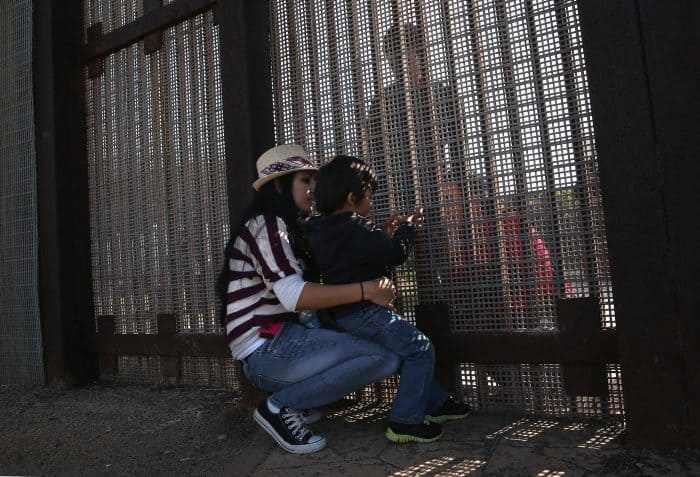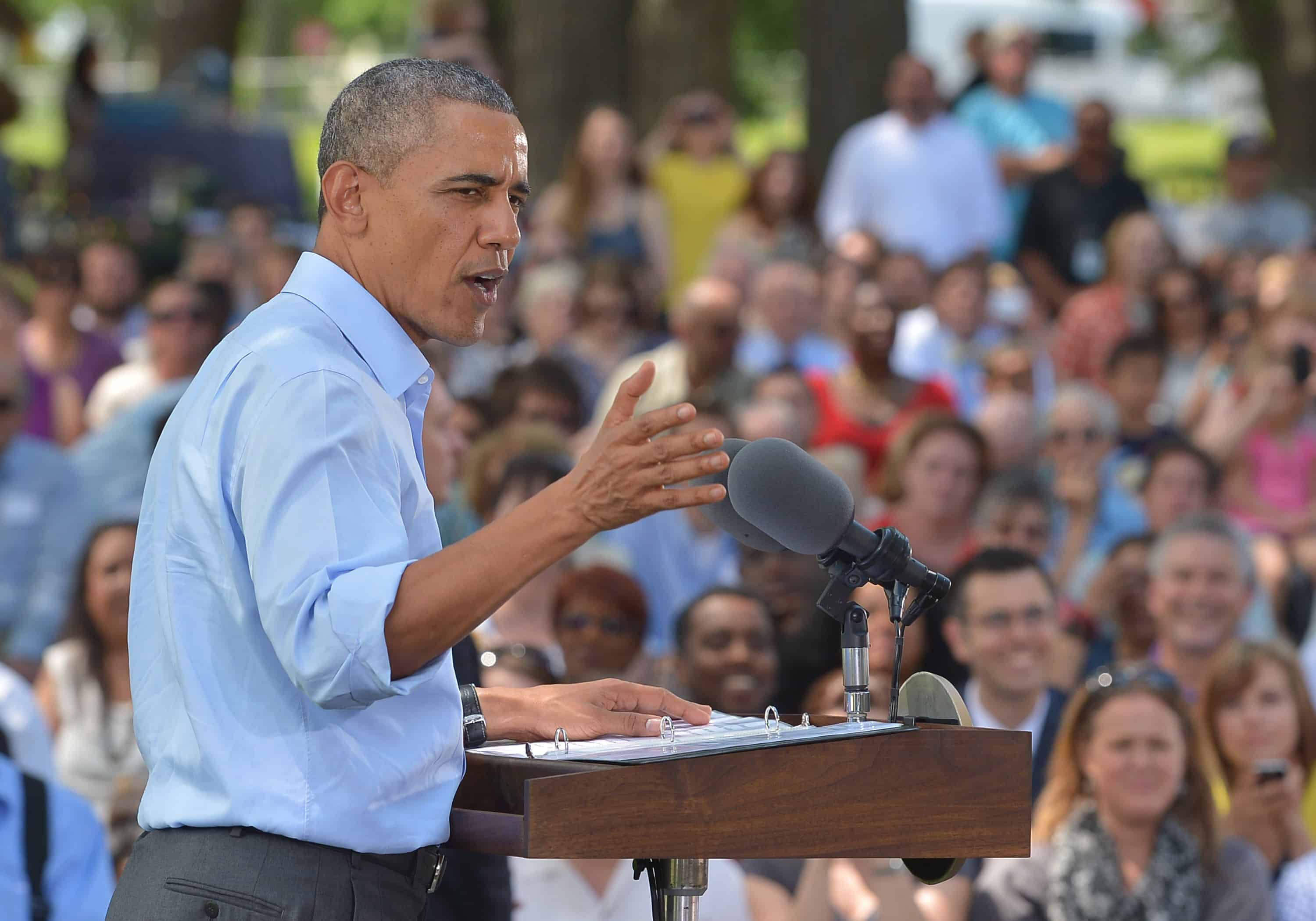WASHINGTON, D.C. – The two-year attempt to push immigration reform through the U.S. Congress is effectively dead and unlikely to be revived until after President Barack Obama leaves office, numerous lawmakers and advocates on both sides of the issue said this week.
The slow collapse of hopes for new border legislation — which has unraveled in recent months amid persistent opposition from House Republicans — marks the end of an effort that both Democrats and Republicans have characterized as central to the future of their parties. The failure leaves some 12 million illegal immigrants in continuing limbo over their status and is certain to increase political pressure on Obama from the left to act on his own.
Some of the most vocal proponents of a legislative overhaul now say they have surrendered any last hopes that Democrats and Republicans can reach a deal. The realization marks a low point for advocates who mounted the first serious immigration push since 2007, when a bipartisan effort under then-president George W. Bush was defeated in the Senate.
Obama called immigration reform his top second-term priority, and many GOP leaders suggested after their 2012 election loss to Obama that a deal was necessary for the party as it sought to broaden its appeal to Latinos.
But after a year of cajoling, prodding and berating House Republicans, leading advocates acknowledge that time has run out. Friday marks a year since the Senate approved a comprehensive immigration bill on a bipartisan vote, with no progress evident in the GOP-controlled House and little time left this year to approve legislation.
“Nothing’s going to happen,” Rep. Luis Gutierrez, D-Ill., said in an interview Wednesday after denouncing his GOP colleagues for their inaction in a fiery House floor speech. “My point of view is, this is over. … Every day, they become not recalcitrant, but even more energetically opposed to working with us. How many times does someone have to say no until you understand they mean no?”
Chances of legislation advancing in the House are “next to zero,” said Sen. Jeff Flake, R-Ariz., a member of a bipartisan group of eight senators who led reform efforts in the upper chamber.
“It’s a shame,” Flake added. But after talking to GOP colleagues in the House, “there’s just no appetite for it right now.”
Hopes for a sweeping immigration deal had already dimmed considerably by this spring. But the Obama administration and its Democratic allies believed, based on signals from House Speaker John Boehner, R-Ohio, and other GOP leaders, that there was a final window for a deal this summer before midterm elections this fall.
Two recent developments, however, appear to have doomed whatever slim chances remained, advocates and lawmakers said. House Majority Leader Eric Cantor, R-Va., lost a primary election this month to a tea party challenger who ran on a strong anti-immigration platform. In addition, a new crisis erupted on the Mexican border, with tens of thousands of unaccompanied Central American children apprehended crossing the border illegally into Texas over the past several months.
House Republicans have cited both situations as evidence that the time is not right for a broad, bipartisan deal that would provide legal status, and potentially citizenship, to millions of undocumented immigrants. Many have also stepped up their rhetoric on the issue, blaming Obama policies for the border crisis and emphasizing that the president has failed to convince them he will enforce immigration laws.
During a House Homeland Security Committee hearing this week, some GOP members suggested that the United States should, among other things, cut off all economic aid to Mexico until the border is secure, build hundreds of miles of new fencing to help prevent more illegal immigration and immediately put the children arrested by Border Patrol officers on buses back to their home countries.
“I think what you need to do is ask the Guatemala government where they want these kids dropped off when the buses bring them back down there,” Rep. Mike Rogers, R-Ala., told Homeland Security Secretary Jeh Johnson during the hearing.
Recommended: Honduran kids flee gangs as migrants inundate US border
The ascension of Rep. Kevin McCarthy, R-Calif., to replace Cantor as majority leader appears unlikely to add new momentum to the immigration effort, even with his representation of an agricultural district that relies heavily on immigrant farm laborers.
House GOP aides said that, like Boehner and Cantor, McCarthy believes that Obama has damaged his standing with the conference through a lax approach to enforcing immigration laws. That view — heavily disputed by the White House — was underscored Wednesday when Boehner announced at a news conference that he intends to sue Obama over the president’s use of executive powers.
Though Boehner declined to spell out which actions would be addressed, Republicans have repeatedly complained about Obama’s 2012 decision not to deport young immigrants who were brought to the country illegally by their parents.
House Judiciary Committee Chairman Robert Goodlatte, R-Va., cited that decision Thursday as one reason why House Republicans should sue Obama. He said that immigration bills won’t begin moving through the House until Obama begins enforcing current law.
“If the administration were serious about enforcing the law, they would not take the law into their own hands and repeatedly find ways to not enforce the law,” Goodlatte told reporters at a breakfast hosted by the Christian Science Monitor. Asked later about the prospects for immigration reform this year, he agreed that “the environment for doing this is exceedingly difficult.”

White House officials acknowledged this week that they have seen no signs of movement on immigration from House Republicans in recent weeks. The president is likely to face a shift in tactics among immigrant advocates, who will renew demands that he use his executive powers to further stem deportations.
Obama rebuffed such calls from Democrats and advocacy groups last spring, asking that they present a united front against House Republicans through the end of July, which he described as the final window of time for a potential breakthrough. Obama delayed an internal review of deportation policies at the Department of Homeland Security until after the summer.
Asked this week if the House GOP had responded to that opportunity, White House Press Secretary Josh Earnest said, “Sadly, no.”
“Unfortunately, right now I think the early indications are not very good for a lot of progress on this front,” Earnest said. “For a year, there has been a very clear template … but House Republicans at every turn have blocked any sort of progress.”
Frank Sharry, executive director of America’s Voice, a leading immigrant rights group, predicted that pressure on Obama would “increase significantly in July” because advocates had lost hope in the legislative process.
Boehner has named a working group of seven GOP members to monitor the administration’s response to the border crisis involving unaccompanied children. He said the group would report back to him after the July 4 holiday recess with suggestions for potential changes in the law.
But even if Boehner were to revive House efforts to pursue legislation, the calendar leaves precious little time.
The House is in session for four weeks until the five-week summer recess that starts in early August. After that, there are just 10 legislative days in September — likely devoted to a host of complex fiscal issues, including a new highway bill and a measure to keep the federal government open when the new fiscal year begins Oct. 1. The House has two legislative days scheduled in October, but those sessions could be canceled to allow members to spend more time at home campaigning for the midterm elections.
The potential of an electoral upheaval leaves the lame-duck session after the midterms also fraught with uncertainty. Members of both parties also suggest it is highly unlikely that immigration reform could be restarted next year, when the early stages of the 2016 presidential campaign begin to take shape.
Democrats have signaled they will continue pushing Republicans to act. Senate Majority Leader Harry Reid, D-Nev., House Minority Leader Nancy Pelosi, D-Calif., and other Democrats rallied Thursday morning to once again make their case, repeating justifications for the legislation that they have used repeatedly for the past two years.
At a breakfast Wednesday hosted by the Wall Street Journal, Sens. Chuck Schumer, D-N.Y., and John McCain, R-Ariz. — two of the architects of the Senate immigration bill — acknowledged that the chances of House legislation were exceedingly slim.
“I can’t tell you we have a great shot at it,” said McCain, his party’s 2008 presidential nominee. “But I know the consequences of failure.”
© 2014, The Washington Post






